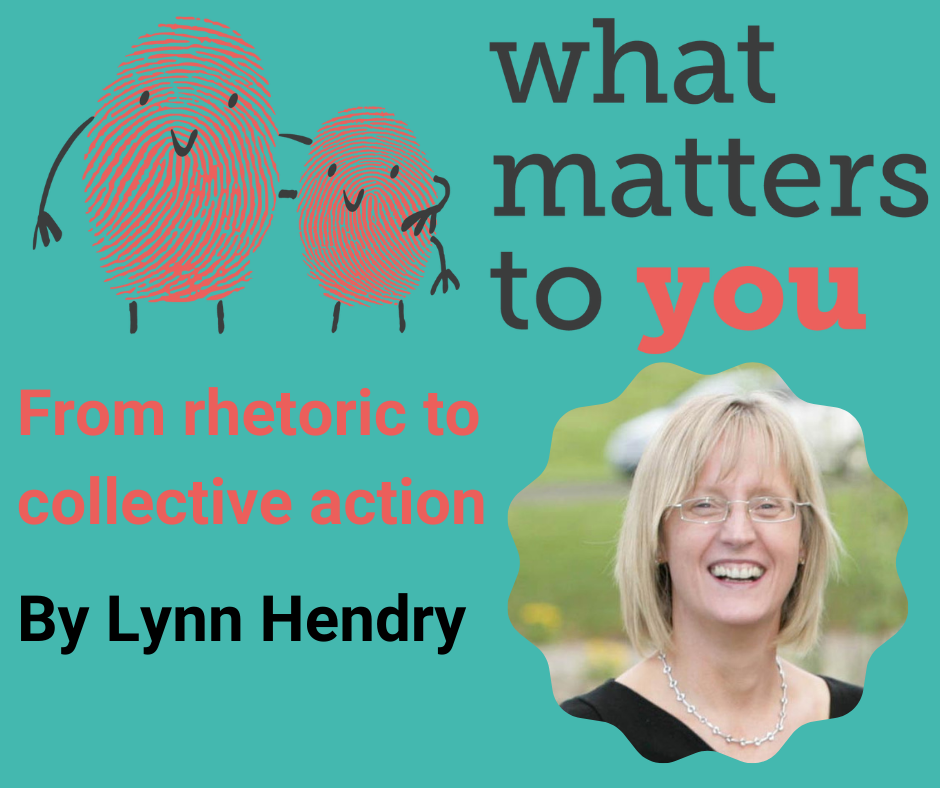From Rhetoric To Collective Action

I wonder if our ability to deliver on the change we seem so desperate to seek is thwarted by an underlying belief that the status quo is the ‘safe option’. That challenges faced by our communities every day, like poverty, are just a way of life? As Mohamad Yunus in his noble lecture commented, we believe that poverty is a natural consequence of the human condition… and yet, we believed we could put humans on the moon… so we did. We get what we believe.
This is a very live risk right now. Feelings of hopelessness at the apparent complexity of our ambitions infect our actions. Yet, it is our belief in what is possible – and acceptable, that will shape our success.
Earlier this month, a group of practitioners, purposefully chosen for their depth of expertise and experience of working with communities and individuals, came together to discuss, explore and commit to taking action to bring systems change closer to the people and communities they work alongside.
That day, the Scottish Government laid out its Programme for Government (PfG) and child poverty was a central theme, set against a backdrop of cuts to public sector funding. With so many delegates invested in changing things for the communities they work within, this was an important announcement.
So together we explored ways to develop a strategy for systems change. To do that we had to step outside of our everyday and ask ourselves what are the drivers of our current systems? Are there any patterns? What are the current systems and structures? What are the narratives we accept and operate within?
Asking ourselves these questions within the context of our own working environment gave us a starting point. It allowed us to “think systemically but act strategically”. This would become our mantra for the day.
We turned our attention to power. We wanted to consider the three faces of power. That is:
• Power to win demands (organising communities)
• Power to drive agenda (long term infrastructure)
• Power to shape common sense (offering a counter narrative)
In our groups, we discussed examples where, culturally, power was beginning to shift. We heard about social work teams and health professionals taking their “badges off at the door” and being open to learning differently. We heard about how doing so meant we were able to frame success from the human impact and not just from the delivery of a service. From this, we found ourselves more certain of the power of communities, that they are part of the power dynamic, not just a recipient. We felt empowered to challenge the narrative that poverty is a fact of life. And that we, alongside communities and individuals, have the power to do that.
The actions proposed were to establish a network of organisations committed to voice led systems change, giving a space to learn and plan together. In doing so, building a legitimate network of trusted and influential individuals would support and enable change within their organisations. And perhaps most importantly, will build a community of like-minded peers who can support bold action. We also agreed to create more opportunities for pooled funding. As independent funders, aligning our resources better with the assets of others allows us to maximise our potential for impact.
We’re grateful to those who put their names against these steps in the promise to go away and challenge colleagues and communities to think differently, to move from rhetoric to action.
What can I say about the day? We were energised by the conversations and the committed actions of the group. It felt like a different group and for that the discussion was enhanced. We were no longer only talking within our echo chambers. Connections across health, housing, funders and local government were made. The room felt comfortable with the notion of challenge and were prepared to sit with their own discomfort, recognising that we are also part of the system and as such, could use our own power for change.
And for that we left the day with a wellspring of hope.
Lynn Hendry, writes on behalf of The Hunter Foundation.
